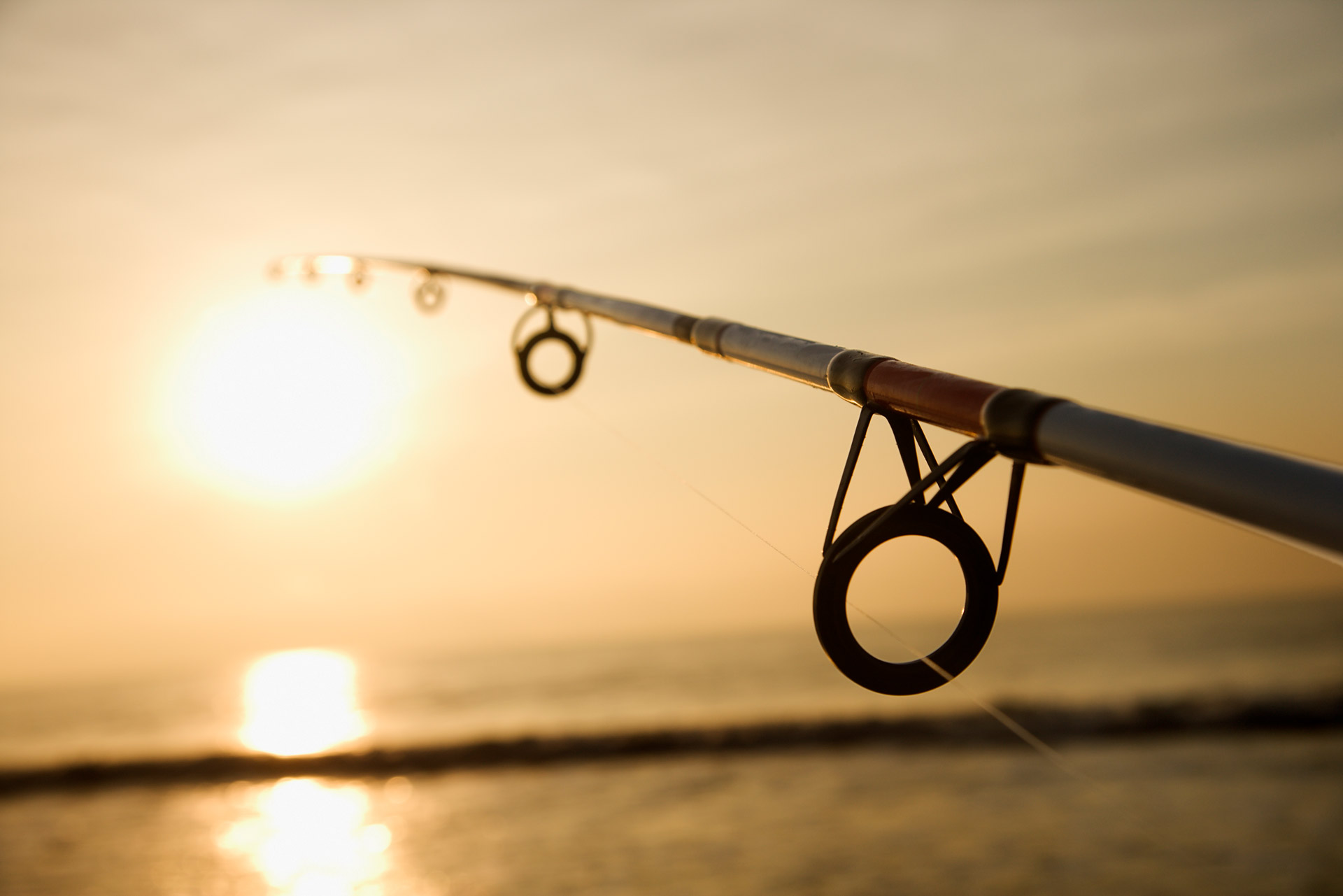Bass Fishing after Rain: What You Need to Know
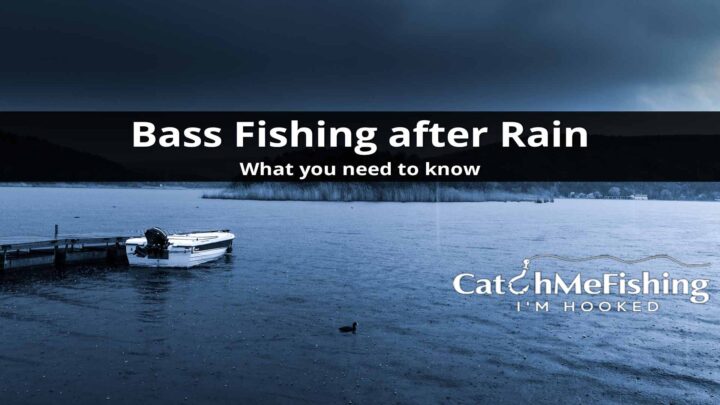
Bass Fishing After Rain
Bass fishing after rain and stormy weather are particularly different from your normal situation, as it offers different opportunities and experiences.
Your strategy of locating and catching bass should change depending on the weather conditions, air temperature, air pressure, and the heaviness of the rain.
Bass fishing after the rain is a real gamble. You might catch the biggest bass of your life or not catch anything worth mentioning at all, you never know what will happen, but it’s always fun to go after a trophy-sized bass. Usually, bass become more active after rainfall, so the chances of catching increase.
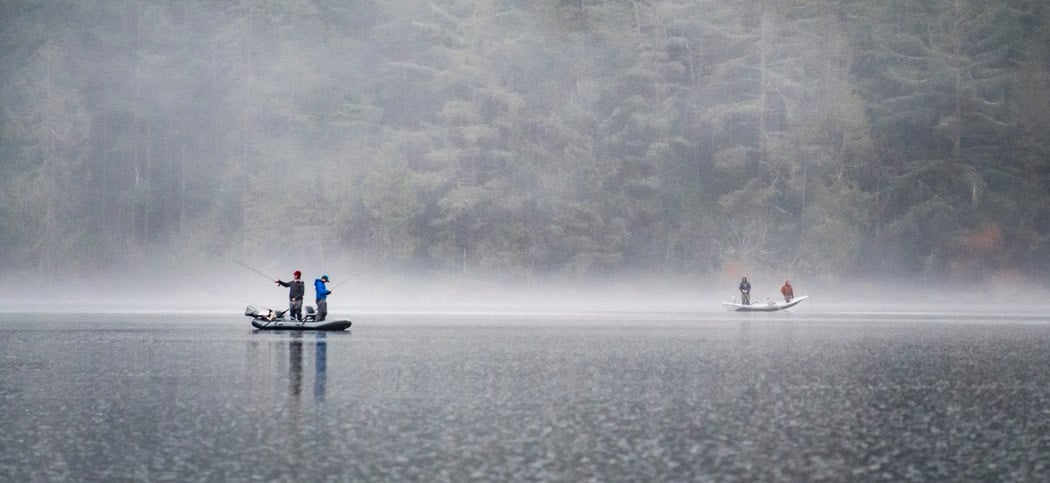
Factors to Consider After Heavy Rain
Let’s look at some factors that need to be considered when bass fishing after heavy rain and a cold front.
- Muddy Waters: When the rainfall is intense, with thunderstorms and even lightning, bass are more likely to feed in muddy areas. Look for them on the edges of muddy waters.
- Metabolism: The water temperature plays an important role in bass behavior after a storm. If the rain leaves the water cold, bass slow down their metabolism and become less active, making it difficult for you to catch bass. With a high metabolism, bass grow faster. But if the water is warm after a warm rain, they are more likely to be active and sometimes go deeper to keep a comfortable temperature. Bass are cold-blooded creatures, so controlling their metabolism is their main way of creating comfort depending on the air and water conditions.
- Sunny Weather: Warm sunny weather is common after storms and heavy rains. If it’s too warm, bass will go deeper into the water.
- Pressure: If the cold front and heavy rains leave a high pressure, fish are less likely to hunt actively, as they feel uncomfortable and bloated. Low pressure makes the bass feel empty, so they hunt very actively.
- Thunderstorm: fishing after a thunderstorm requires different strategies but is fishing well after a storm? It’s a little different from normal fishing, but it’s not just good, but great.
- The intensity of rain: different rain intensities cause a change in bass behavior, water clarity, and level. After heavy rain, fish migrate to freshwaters as they hold more oxygen and food for bass.
The bass fishing strategy after rain is a little different from normal fishing. Let’s go through some tips to help you plan a great after-rain bass fishing strategy.
Is Bass Fishing Good After it Rains?
The answer is yes, but only if you have the right bait and technique. Bass are especially active after it's rained but also spook very easily.
You need to fish differently than you normally do when the weather is fine. Changing how you fish after rain to benefit how the fish feed will give you a great day's fishing.
Do Bass Bite After it Rains?
Fish are stimulated to bite more and generally become active, which allows you to catch fish without too much trouble.
But after some time they slow down and don’t search for food as actively as before.
Water Levels, Oxygen Levels, and Runoff Water
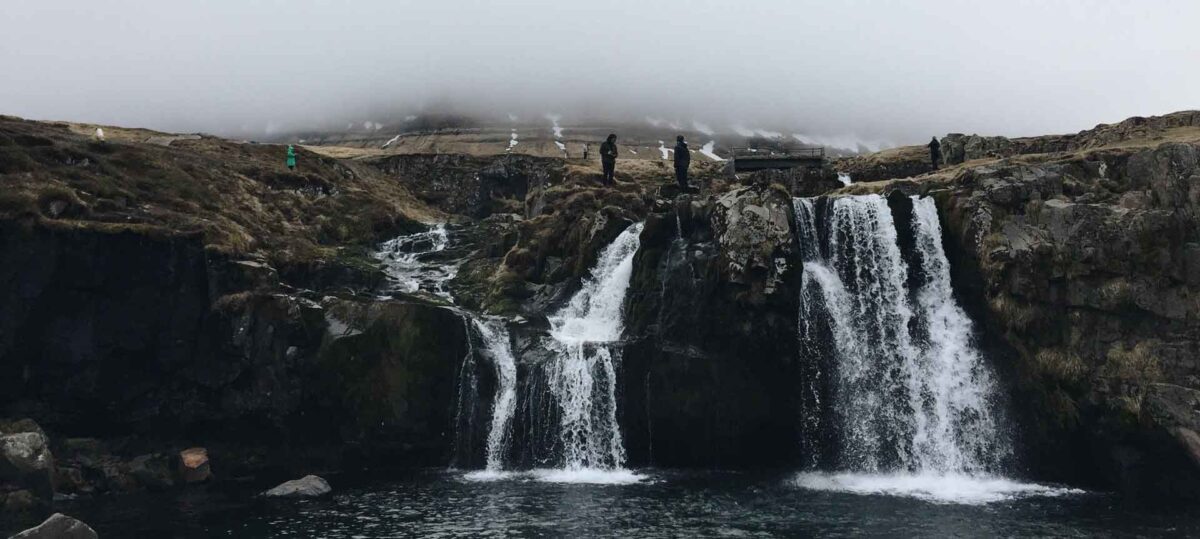
Runoffs enrich the water with different nutrients and increase the oxygen level in the water. That’s why fish are more likely to swim in this area. So make sure to pay special attention to runoffs as they will come in handy, especially when you’re fishing for trophy bass.
Mud lines are where runoff water from the land mixes with the main body of water.
The higher oxygen level gives bass more energy, so fishing after a rain storm can be very productive under the right circumstances.
Look to fish the areas of water that look cloudy from the runoff area. That's where the fish will be hanging out.
The muddy water is good because it means that runoff is water from land that runs into the lake.
Worms in the muddy runoff water will attract fish like the bass to eat them. This causes a feeding frenzy.
But the runoff area can also be bad for fish too, especially if it is cold rain or melting snow. The thawed ice water will lower the water temperatures for the fish to feed.
Tips for Bass Fishing After a RainStorm
Topwater Fishing
Bass become extremely active when it’s raining and search for food everywhere. If you have a good lure that will attract them even from a distance, bass will indubitably bite.
Fish the New areas
If you fish after heavy rain and thunderstorm, it’s highly likely that the water level will rise significantly. Therefore, you’ll be able to fish in difficult or impossible areas to get to before the rain. Such areas are covers that are particularly thick and dense. Bass love thick covers where they can easily hide from their prey. When fishing after rain, don’t miss the opportunity to explore the areas which normally would be approachable by your boat.
Move slowly
Bass are less likely to go after fast-moving creatures after stormy weather. So don’t make them put too much effort into attacking the lure.
Where to Find Bass After Rain
Heavy rains and storms cause bass to leave their usual habitats and migrate somewhere else, but it’s never too far from the starting location.
They’ll stop moving once they find enough food, as their main concern is feeding themselves. So, they don’t have any reason to move unnecessarily far away from the shores, docks, natural covers, and weeds they inhabited in the past.
Bass become much more aggressive and active when it rains, wanting more food, and usually, that’s why they leave the hideouts. So fishing in the open water might be more productive than in covers.
Areas with high oxygen levels, like runoff areas, will also be great spots to fish after it's rained.
Sometimes bass tends to go deeper into the water to adjust the water temperature to their preferred conditions.
When you’re fishing in a rain storm, the current of the water will be faster. It’s better to position your boat downstream and cast the lure upstream.
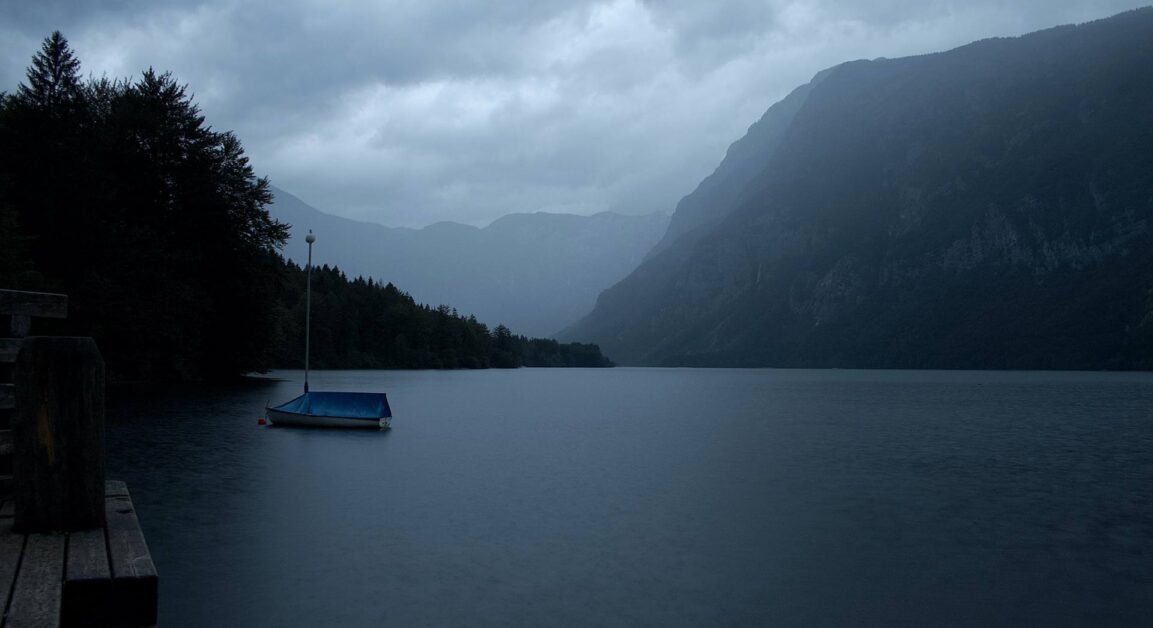
Equipment to Use for Bass Fishing After Rain
Gear for Fishing After Rain
You must protect yourself as much as possible from the rainwater while you fish. This will make your fishing trip much more enjoyable.
Make sure to wear an appropriate outfit in case of a rain storm and a sudden weather turn. Waterproof hoodie, vest, pants, or any other piece of clothing. Also, a good set of waders would protect you from the rain.
An especially important part of the gear is footwear. You need a set of strong waterproof boots from muckboot not to slip and fall and not catch a cold easily.
You don’t need special reels and rods for bass fishing after a rain downpour; choose what you would usually use. Take a look at the guide and reviews where I recommended the best rods and reels for bass fishing.
What Lures to Use After Rain Bass Fishing
The types of lures for bass fishing after rain are almost the same as for other weather circumstances.
The main difference between lure types is that you want to use a lure with a little more power and creates quite a bit of movement to attract the fish.
Lure Colors for Bass Fishing After Rain
The visibility of bass decreases significantly after a cloudy and dark day of rain and thunderstorms. Our goal is to make the lure clearly distinguishable and easily noticeable. So, we must create a good contrast between the lure and water.
The best lure colors to use in low visibility are bright and vibrant colors such as yellow, orange, bright red, dark vibrant green, lime green, bright chartreuse, and any other easily noticeable colors.
Pay close attention to the water clarity and weather conditions. The visibility of bass may become clearer in no time, depending on the light. Make sure to have lighter lures with you. Lures with natural colors include white, light blue, light green, grey, and light brown.
Lure Types for Bass Fishing After Rain
- Spinnerbaits: one of the most effective lures after rain is spinnerbaits. They are fast-moving and easily noticeable, perfect for active and aggressive bass looking for food like crazy after heavy rain.
- Worms: plastic worms are great in any situation. It’s popular among bass in any season, weather, and other conditions, so they’ll always be lured by worms. It’s practical always to keep some worms in your lure kit. As you don’t know, if the bass is active, using worms will be safe for any occasion.
- Chatterbaits: the vibration and contrast make chatterbait one of the most effective lures. It easily attracts the bass even from a distance as it creates easily noticeable vibrations.
- Topwater Frogs: frog lures are especially useful if you decide to fish in covers such as dense weeds. Now that you can get through the covers that were difficult to reach, topwater frogs will come in handy.
- Swim Jigs: swim jigs are best used in vegetation and other thick natural covers where other lures might be unpractical. It won’t get stuck in dense covers and will swiftly do its job. Even if bass will migrate and leave covers for some time after heavy rain, vegetation will still be crowded. My personal favorite is a Texas rig.
Popular Questions Asked About Fishing After Rain
Here is a list of popular questions asked about fishing after a rainstorm:
Where do fish go after rain?
Fish Bass are usually able to move into deeper water in the event of a storm. They will also often move out of major structures and cover when rains fall.
Is fishing good the day after a storm?
When fronts pass through, changes in barometric pressure can also influence feeding with several species. Fishing after a front moves through is usually bad and remains poor for several days. But if you follow my recommendations and tips you will have much more success.
Is it bad to go fishing after rain?
Rainy weather can be very good for Lake Fishing. Rain is capable of aerating the water and can also cool it, allowing fish to thrive. Disturbing the surface of lakes also inhibited their view and make it easier for you to disguise your bait and lures.
Are Bass active after rain?
The stronger the turbulence and rain, the more oxygen is absorbed, thereby increasing the fish's metabolism. So after a rain front has settled and the water has warmed up, the fish should become more lively.
Ready to Go Bass Fishing After Rain?
In most cases, fishing after heavy rain is very productive and enjoyable. Fish are stimulated to feed more and generally become active, allowing you to catch fish without too much trouble. But after some time, they slow down and don’t search for food as actively as before.
Some anglers claim that bass fishing is better before the rain than after, as bass are relatively more active. But you won’t be entirely sure until you experience it yourself. There are no exact rules to follow when to fish for bass.
Check the weather prognosis for sunny, cloudy, or even rainy weather.
Happy fishing 🙂



